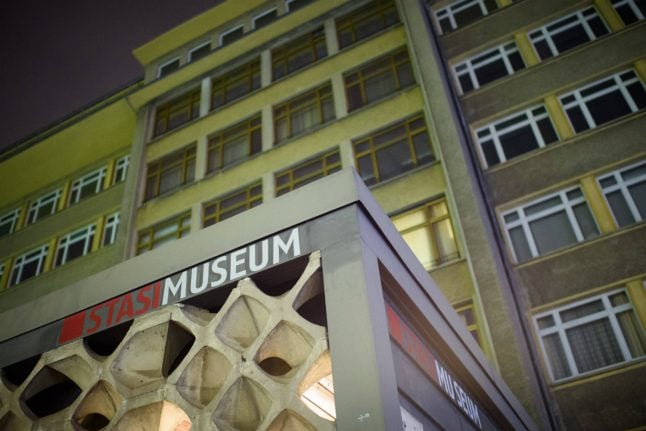The robbers broke in through a window on the first floor, “smashed several showcases, and stole medals and jewellery”, said police in a statement.
They made off with their spoils undetected.
The time of the raid was unclear but a museum employee found showcases smashed in the exhibition rooms on Sunday morning.
Museum director Jörg Drieselmann told the Tagesspiegel daily that among the medals taken were a gold Patriotic order of Merit, an Order of Karl Marx – the highest honour awarded in the former communist East Germany and an Order of Lenin.
Stolen jewellery included rings and a watch, he said.
The items were confiscated by the Stasi from private individuals.
After the collapse of the communist regime, many items were returned to their owners. But some which remained unclaimed were on loan to the Stasi Museum as part of its exhibition.
“These are not huge treasures. But we are a history museum and don't expect people to break in,” the museum chief was quoted as saying.
The latest robbery came hot on the heels of a brazen heist at the Green Vault museum in Dresden's Royal Palace on November 25th.
READ ALSO: Everything you need to know about the Dresden museum heist
Having sparked a partial power cut before breaking in through a window, the thieves stole priceless 18th-century diamond jewellery – including a famous 49-carat Dresden white – from the collection of the Saxon ruler August the
Strong.
Police are still hunting four suspects, and have offered half a million euros as a reward for information leading to an arrest or recovery of the stolen goods.
Investigators are also in contact with colleagues in Berlin to explore possible connections to a similar heist in the capital two years ago.
In 2017, a 100-kilogramme (220-pound), 24-karat giant gold coin was stolen from Berlin's Bode Museum.
Four men with links to a notorious Berlin gang were later arrested and put on trial.
The coin has never been recovered, and fears are growing that the Dresden treasures will also remain lost forever.
Shaken by the loss, Germany's culture minister Monika Gruetters this week called for a national conference on museum security.
“We need to look at how museums can protect their objects from such brutal activities while still being accessible to the public in the normal way,” she said.



 Please whitelist us to continue reading.
Please whitelist us to continue reading.
Member comments